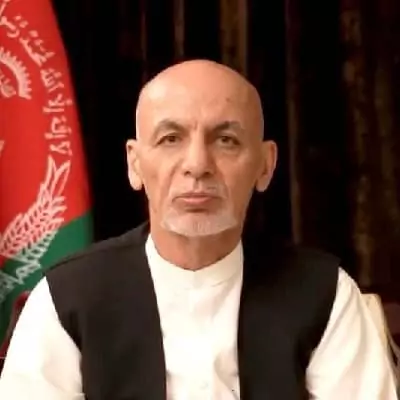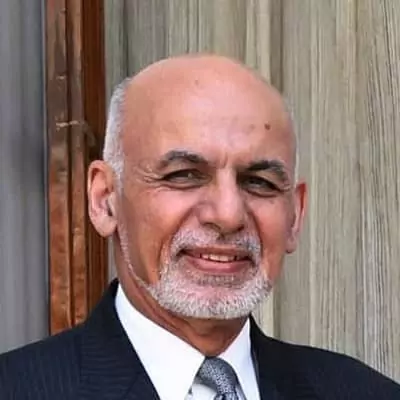Ashraf Ghani is a well-known Afghan economist, academic, and ex-politician. Ashraf Ghani was born on May 19, 1949.
Table of Contents
Wiki, Bio, Family, Siblings, Childhood & Education
Ashraf Ghani was born on May 19, 1949, in the Logar Province of Afghanistan’s Kingdom. His current age is 73 years old. His parents are Shah Pesand (father) and Kawbaba Lodin (mother). Hashmat Ghani Ahmadzai is Ghani’s younger brother. Similarly, his father is a clerk and his mother is a housewife. He is an Afghan national with a Middle Eastern ethnic background. He was born under the solar sign Taurus, according to his birthdate.
His primary education was in Afghanistan. In Kabul, he completed his secondary education. Ghani, on the other hand, attended Lake Oswego High School (LOHS) in Lake Oswego, Oregon, as a foreign exchange student under the name Ashraf Ahmad for the 1966-1967 academic year. The American Field Service paid for his time abroad. He was involved in student governance.
In 1973, he earned a Bachelor of Arts in political studies from the American University of Beirut in Lebanon. Ghani taught at Kabul University from 1973 to 1977, then at Aarhus University in Denmark in 1977. In 1977, he earned a Master’s degree in cultural anthropology from Columbia University on a government scholarship.
Ghani intended to stay for two years, but the onset of the Saur Revolution in 1978 resulted in the arrest of the majority of his male family members. He stayed at Columbia, where he got a Ph.D. in cultural anthropology in 1983. ‘Production and Dominance: Afghanistan, 1747-1901,’ was the title of his dissertation research thesis. His thesis advisors were Conrad M. Arensberg, Richard Bulliet, Morton Fried, and Robert F. Murphy.
Ashraf Ghani’s Age, Height, Weight, and Body Dimensions
In terms of physical appearance, he has a fit and well-kept body personality. He is 5 feet 7 inches tall and weighs 72 kilograms. However, no information is provided concerning his physique size, dress size, waist size, and so on. He is a bald man with no hair and a pair of dark brown eyes. He has a white beard.

Career before returning to Afghanistan (1983-2001)
Academic Experience (1983-1991)
He taught briefly at the University of California, Berkeley after getting his Ph.D., before becoming an associate professor at Johns Hopkins University from 1983 until 1991. His research centered on social change and state-building. He completed a year of fieldwork investigating Pakistani madrassas as a Fulbright Scholar in 1985.
World Bank (from 1991 to 2001)
In 1991, Ghani was selected as the World Bank’s Lead Anthropologist. During this time, he worked on many projects in China, India, and Russia for five years. He moved his focus after the mid-1990s to developing reform programs, reviewing country plans, and contributing to the Bank’s social policy. While employed by the Bank, he participated in the World Bank-Stanford Graduate School of Business and Harvard-INSEAD leadership development programs.
Return to Afghanistan (2001–2013)
He returned to Afghanistan in December 2001 after a 24-year absence. Following the Taliban’s defeat in that year, which lasted from December 2001 to July 2002, Ghani rose to prominence in the Afghan Interim Administration.
He left the World Bank to serve as Ambassador Lakhdar Brahimi’s special adviser at the UN as the UN Secretary General’s special envoy to Afghanistan. While he was in this capacity, he developed and implemented the Bonn Agreement, which outlined Afghanistan’s post-Taliban government. During this time, he also acted as chief adviser to Hamid Karzai, the temporary president. He approved the constitution as he prepared for Loya Jirgas that finally picked Karzai.
Finance Minister (2002-2004)
On June 2, 2002, Ghani was appointed finance minister of the new Transitional Afghan Government led by President Karzai. This administration was to be replaced by a “fully representative government” in 2004.
He implemented a number of significant reforms, including the creation of a new currency, computerization of treasury operations, the establishment of a single treasury account, the adoption of a balanced budget policy and the use of budgets as the primary tool for policy implementation, centralization of revenue collection, tariff reform, and customs overhaul.
He initiated frequent reporting to the cabinet, the broader public, and foreign stakeholders to increase transparency and accountability. Ashraf Ghani also requested that donors focus their efforts on three areas while developing a development strategy that would make Afghans more accountable for their own future development. He assisted with the National Solidarity Program, which included 13,000 of the estimated 20,000 settlements in the country.
Transition Coordination Commission Chairman (2010-2013)
From 2010 to 1 October 2013, he led the Afghan Transition Coordination Commission (TCC), which was in charge of transferring responsibility from ISAF/NATO forces to Afghan Security Forces. During this time, he traveled extensively throughout Afghanistan.
On January 28, 2010, Ghani attended the International Conference on Afghanistan in London, where he reaffirmed his support for the endeavor to rebuild that country. Ghani expressed his support for Karzai’s reconciliation policy, citing the importance of partnership among Afghans and with the international community.
Ghani claimed that observing Karzai’s second presidential address in November 2009, as well as his vows to avoid corruption, achieve peace, and displace foreign security forces, persuaded him to lend a helping hand. He resigned from his position on October 1st, 2013 in order to run for president in 2014.
Presidential Presidency (2014-2021)
After declaring his candidacy for the 2014 elections, Ghani chose Sarwar Danish, a Hazara and former justice minister in Karzai’s cabinet, and General Abdul Rashid Dostum, a well-known Uzbek politician and former military officer, as his vice presidential candidates. The two front-runners from the first round, Ghani and Abdullah Abdullah, contested in the run-off election. It was held on June 14, 2014, after no contender received more than 50% of the vote in the first round.
The preliminary results of the run-off elections showed that Ghani was the obvious favorite to win. However, allegations of vote fraud resulted in a stalemate, violent threats, and the formation of a parallel government by Abdullah Abdullah’s campaign.
On August 7, 2014, US Secretary of State John Kerry traveled to Kabul to mediate a compromise requiring a careful examination of over 8 million ballots and the formation of a national unity government. As well as the formation of a new role for the CEO, who would have substantial responsibilities inside the president’s administration.
More…
After a three-month audit process overseen by the UN and supported by the US government, the Independent Election Commission declared Ghani president. Ghani had previously agreed to a national unity pact. Initially, the election commission stated that it would not formally announce specific results. It later issued a statement indicating that Ghani received 55.4% of the vote and Abdullah Abdullah received 43.5%, but it chose not to reveal the exact vote totals.
Ghani, who is now 65 years old, has been the oldest Afghan king to enter power since the creation of the Durrani Empire in 1747. When he was re-elected in 2019, at the age of 70, he surpassed Mohammed Daoud Khan to become the oldest president in office.
Political Opinions
Ghani is a modernist progressive who wants to “transform Afghanistan from a tribal, patronage-based society to a modern technocratic state.” He holds high regard for both King Amanullah Khan, a progressive Afghan king in the 1920s, and General Sardar Mohammed Daoud Khan, a former Afghan prime minister and the country’s first president of the Republic of Afghanistan in the 1970s.
Controversy
On February 2, 2020, Ashraf Ghani’s inflammatory comments about Timur and Muhammad of Ghor enraged Afghanistan’s Uzbek community. He said this while speaking to a group of Afghan teenagers about history, culture, and national identity. According to Ghani, Genghis Khan destroyed the northern irrigation system, whereas Muhammad of Ghor destroyed the country’s central irrigation system.
Ghani also gave the Turkic conqueror Amir Timur the Persian epithet “Timur Lang” (Timur the Lame). Timur was also accused of destroying the irrigation infrastructure for the districts of Sistan, Farah, and Helmand. According to experts, his remarks regarding Timur angered Uzbeks, and the Uzbek community in Afghanistan criticized him for them.
Following his remarks, Faryab residents protested and sought an apology from Ashraf Ghani. Protesters warned to take extreme action if Ghani refused to repudiate his remarks. Abdul Rashid Dostum, Afghanistan’s former vice president and a member of the Uzbek ethnic group, also begged Ashraf Ghani to apologize.
Bashir Ahmad Tahyanj, a spokesperson for the National Islamic Movement of Afghanistan, stated that “Ghani has a personal tendency towards historical figures, honorable ethnicities, the history, and culture of the people who live in Afghanistan.” He’s done it before. In a statement, the Afghan government palace defended Ghani’s remarks, saying that “what Ghani said about Timur was not offensive or insulting.”
Ashraf Ghani’s Wife, Marriage & Relationship
Ashraf’s marital status is that he is married. He married Rula Sadee, who was born into a Christian family in Lebanon. They first met in 1970, while studying at the American University of Beirut. Their wedding occurred in 1975. The couple has two children, a daughter named Mariam Ghani and a son named Tarek Ghani. His son is a foreign policy advisor, while his daughter is a professional visual artist.
They finally moved to the country and became citizens there. Ghani, however, gave up his American citizenship in order to vote in the 2009 Afghan elections. Ghani made an unprecedented move for an Afghan politician at his presidential inauguration in 2014, publicly praising his wife and referring to her by her Afghan name, Bibi Gul. “I want to thank Bibi Gul, my partner, for supporting me and Afghanistan,” he said. She has always been a supporter of Afghan women, and I hope she will continue to be so.
Ghani lost much of his stomach after being afflicted with cancer in the 1990s. Ghani is required to read for two to three hours every morning before five o’clock.
Ashraf Ghani’s Salary and Net Worth
Throughout his political career, Ashraf has amassed a sizable fortune. As of April 2023, he has a net worth of $5 million. He lives a wealthy and affluent life in the United States with his family.
Ashraf Ghani’s Social Media(Facebook, Twitter, Instagram)
In terms of social media, he is active on Facebook and Twitter. To date, his Facebook page ‘Ashraf Ghani’ has over 2.8 million followers. Similarly, he joined Twitter in June 2009 and now has over 1.1 million followers on his ‘@ashrafghani’ account.
Quick Facts
| Full Name | Ashraf Ghani |
|---|---|
| Born Date | 19 May 1949 |
| Age | 73 years |
| Horoscope | Taurus |
| Lucky Number | 11 |
| Lucky Stone | Emerald |
| Lucky Color | Green |
| Best Match for Marriage | Virgo, Cancer, Capricorn |
| Gender | Male |
| Profession | Politician |
| Country | Afghanistan |
| Height | 5 feet 7 inches (1.70m) |
| Marital Status | married |
| Wife | Rula Ghani |
| Net Worth | $5 Million |
| Eye Color | Dark Brown |
| Hair Color | Bald |
| Birth Place | Logar Province, Kingdom of Afghanistan |
| Nationality | Afghan |
| Ethnicity | Middle Eastern |
| Education | Columbia University |
| Father | Shah Pesand |
| Mother | Kawbaba Lodin |
| Siblings | Hashmat Ghani Ahmadzai |
| Kids | 2 (Mariam Ghani, Tarek Ghani) |
| Ashraf Ghani Facebook | |
| Ashraf Ghani Twitter | |
| IMDB | Ashraf Ghani IMDB |
| Wiki | Ashraf Ghani Wiki |
| Brands | N/A |
| Hobbies | N/A |

